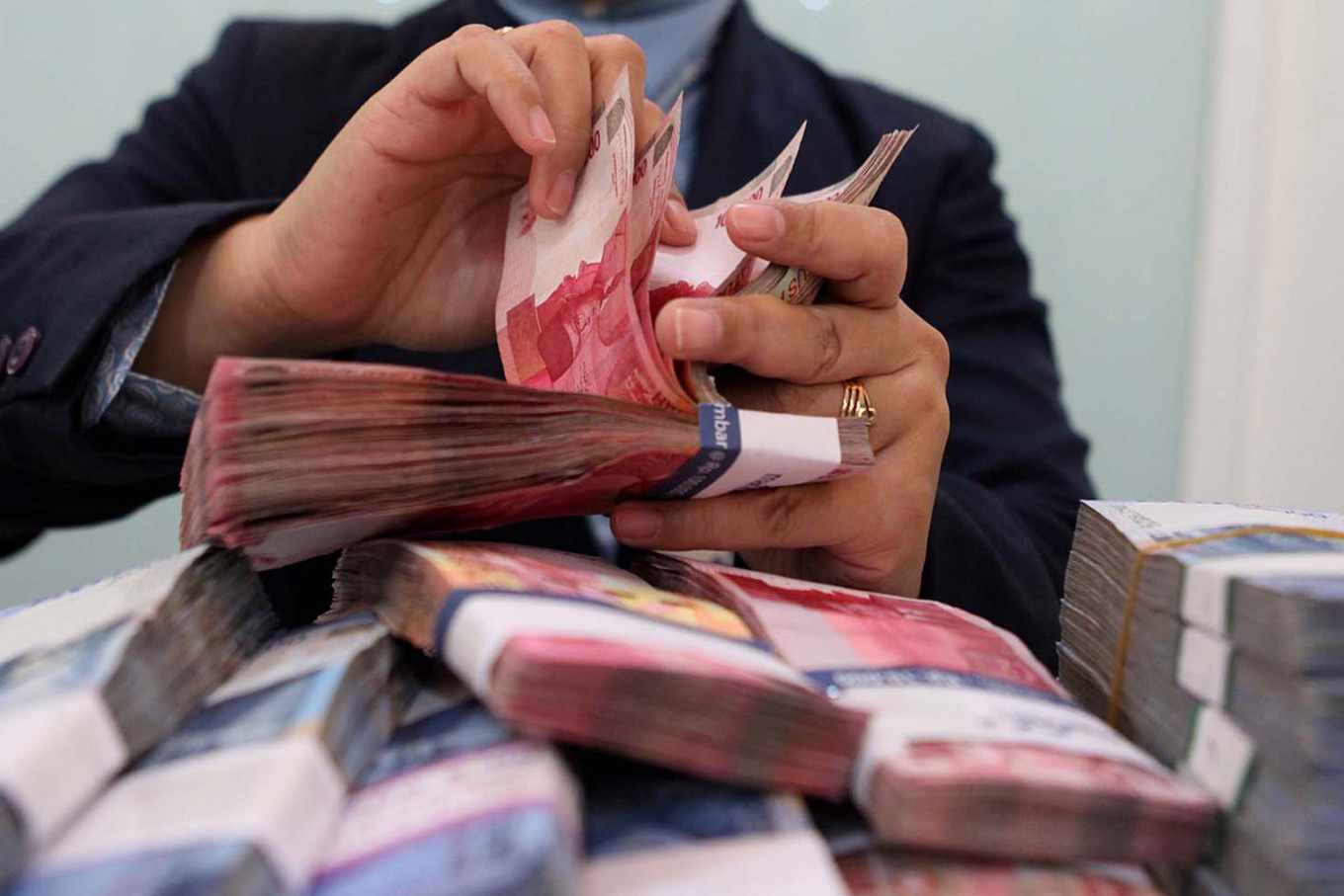Popular Reads
Top Results
Can't find what you're looking for?
View all search resultsPopular Reads
Top Results
Can't find what you're looking for?
View all search resultsState-owned banks disburse $6 billion in working capital loans
State-owned banks have collectively disbursed Rp 88 trillion (US$5.94 billion) in working capital loans using funds placed in them by the government, with almost all of the banks reaching their credit channeling target.
Change text size
Gift Premium Articles
to Anyone
State-owned banks have collectively disbursed Rp 88 trillion (US$5.94 billion) in working capital loans using funds placed in them by the government, with almost all of the banks reaching their credit channeling target.
Three of the four State-Owned Banks Association (Himbara) members, namely Bank Rakyat Indonesia (BRI), Bank Mandiri and Bank Negara Indonesia (BNI), have all reached their target of disbursing three times the amount of government funds placed in them.
BRI president director Sunarso said on Thursday that the micro-business-focused bank had disbursed a total of Rp 30.2 trillion in working capital to 695,750 debtors as of Aug. 7, long before the government’s deadline of this month.
“Most of those loans are aimed at the micro segment, with around 56 percent of the recipients being existing customers and the remaining 44 percent are new ones,” he said during a hearing with House of Representatives Commission XI, which oversees financial affairs.
The government in June placed a total of Rp 30 trillion in four state-owned banks to be channeled as loans to businesses to help support economic recovery amid the COVID-19 pandemic. Of those funds, BRI and Bank Mandiri each received Rp 10 trillion, while BNI and BTN each received Rp 5 trillion.
Himbara then pledged that it would disburse up to Rp 90 trillion in loans by the end of September to help small businesses recover from the severe economic impact of the pandemic.
Bank Mandiri vice president director Hery Gunardi said the bank had also reached its target. “We’ve disbursed Rp 32 trillion in loans to 78,759 debtors following the fund placement,” he said.
BNI, too, has disbursed three times the amount of government funds placed in it, mostly as working capital for businesses in the micro segment, with a total disbursement of Rp 16.39 trillion to 63,573 debtors.
Only mortgage-focused Bank Tabungan Negara (BTN) has yet to reach the target. President director Pahala N. Mansury said the bank had only disbursed a total of Rp 9.42 trillion to 34,000 debtors as of the end of August, or 62.8 percent of the bank’s disbursement target of Rp 15 trillion.
Around 81 percent of BTN loans were disbursed for the housing sector, mostly in the form of subsidized housing mortgage loans for first-time homeowners, he said, admitting that the bank faced several challenges in implementing the program.
“One of the main issues is the weak purchasing power as companies dismiss their employees due to the restrictions to prevent further spread of the virus,” he said.
Several regions in the country enforced large-scale social restrictions (PSBB) in April and May to curb the spread of the coronavirus. The move abruptly limited economic activity as the government advised people to stay home.
As a result, Indonesia’s economy contracted by 5.32 percent in the second quarter of this year as household spending, which accounted for more than half of the country’s gross domestic product (GDP), plunged by 5.51 percent.
Another challenge was the lack of basic infrastructure like roads and electricity in several subsidized housing complexes, which discouraged buyers from buying their first house, Pahala said.
Despite the challenges, the bank expressed optimism that it could reach the loan disbursement target this month.
“We expect to disburse up to Rp 15.38 trillion by Sept. 25,” he said, adding that the bank would continue to be prudent to prevent its bad loan ratio from increasing.
BTN’s nonperforming loans ratio jumped to 4.71 percent in the first half of this year, much higher than the 3.32 percent ratio recorded in the same period of 2019.










